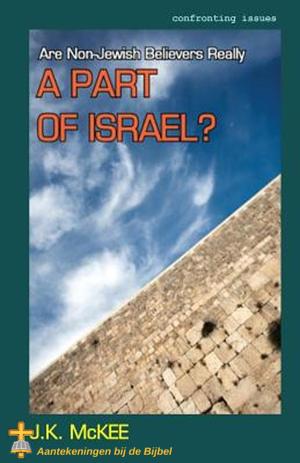
welke resulteren in allerlei aantekeningen.

The composition of the people of God, as broad and deep as this sector of theology is, is a definite place where some important, imperative, and critical thinking and reflection are surely needed by today’s Messianic Believers. Ecclesiology is not an area of theology that enough Messiah followers adequately understand or appreciate the importance of. To far too many, it is just a big word without a great deal of significance. Yet, given what many of today’s Messianic Believers, Jewish and non-Jewish, are convicted of, have read in Scripture, and have had the witness of the Holy Spirit regarding the likely future of the still-emerging and still-developing Messianic movement, ecclesiology is something very important.Ecclesiology widely affects a person’s eschatology, or approach to end-time events that are supposed to occur prior to and subsequent to the Messiah’s return. For today’s Messianic movement, ecclesiology affects how Jewish and non-Jewish Believers read the Bible, and the instructions that God wants us to follow. Ecclesiology undeniably affects the unity of Jewish Believers and Believers from the nations as one in the Body of Messiah.What does this mean in terms of the ekklesia? Is the ekklesia an actual separate entity known as “the Church”? Or, is ekklesia no different than the assembly of Israel itself—which takes Bible readers back to the mixed multitude of physical descendants of Abraham, Isaac, and Jacob, and the welcomed persons from the nations, who received His Ten Words and Instruction at the base of Mount Sinai (cf. Exodus 12:38)? Did Yeshua the Messiah come to found a separate group of elect called “the Church,” or did He come to rebuild and restore His Father’s assembly of righteous ones (cf. Matthew 16:18; Jeremiah 33:7, LXX), restoring the Kingdom to Israel (cf. Acts 1:6)?Regardless of where you stand on Jewish and non-Jewish Believers in the Kingdom of God, a wide range of changes are approaching our Messianic faith community—which are going to leave a demonstrable impact on all of us, as we approach the final stages of time before the Messiah’s return. The basic choices of ecclesiology we have are stark: either God (1) has two groups of elect, or sub-peoples: Israel and “the Church”; or God (2) recognizes us all as a part of an enlarged Kingdom realm of Israel. How are we to approach non-Jewish Believers in the Messianic movement, and things like the Commonwealth of Israel (Ephesians 2:11-13), the Israel of God (Galatians 6:16), or being grafted-in (Romans 11:16-18)? Will the Messianic movement emerge into something that tends to be exclusive or inclusive? There is much that we need to be considering from the text of Scripture, and what many have said and are likely to say, as we evaluate what our future beholds.
| Titel | Are Non-Jewish Believers Really a Part of Israel? |
| Auteur | J.K. McKee |
| Uitgever | Createspace Independent Publishing Platform |
| Jaar Verschenen | 2016 |
| Taal | en |
| Pagina's | pp. 224 |
| ISBN13 | 9781537437743 |
| Onderwerp | Efraim beweging |

Zie de huisregels welk commentaar wordt opgenomen!